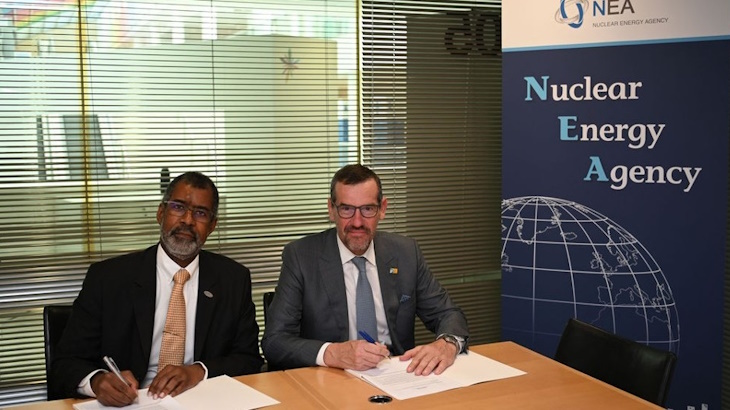
The OECD Nuclear Energy Agency (NEA) project will build on global interest in innovative fuels, small modular reactors, and advanced reactor systems for sustainable nuclear energy, and capitalises on the opportunity to integrate a sustainable spent fuel and waste management strategy from the very beginning of advanced reactor lifecycles. Focusing on four key topics of long-term disposal, transportation, treatment, recycling and reprocessing, and intermediate storage, the project aims to create a first-of-a-kind international platform focusing on the specific characteristics of used fuel and radioactive waste from SMRs and advanced reactors. Subsequent work will build on this knowledge to assess the suitability of current waste management solutions for the next generations of used fuel and radioactive waste.
EPRI's support for WISARD was finalised following an inaugural government-industry conference and the US institute is the first financial backer for the project. "EPRI's extensive experience of collaborating with scientists, engineers, governments and academia to drive innovation from conception to shutdown will be a valuable addition to the WISARD project," NEA said.
Development of the scope of WISARD is ongoing, in collaboration with interested parties, with work on the project expected to officially start in the third quarter of 2024 and continuing until 2027.
EPRI is an independent, nonprofit energy research and development organisation which conducts research and development relating to the generation, delivery and use of electricity for the benefit of the public.
The NEA said it will welcome additional participants throughout the project development phase, and has invited interested parties to contact its secretariat via [email protected] for further information.